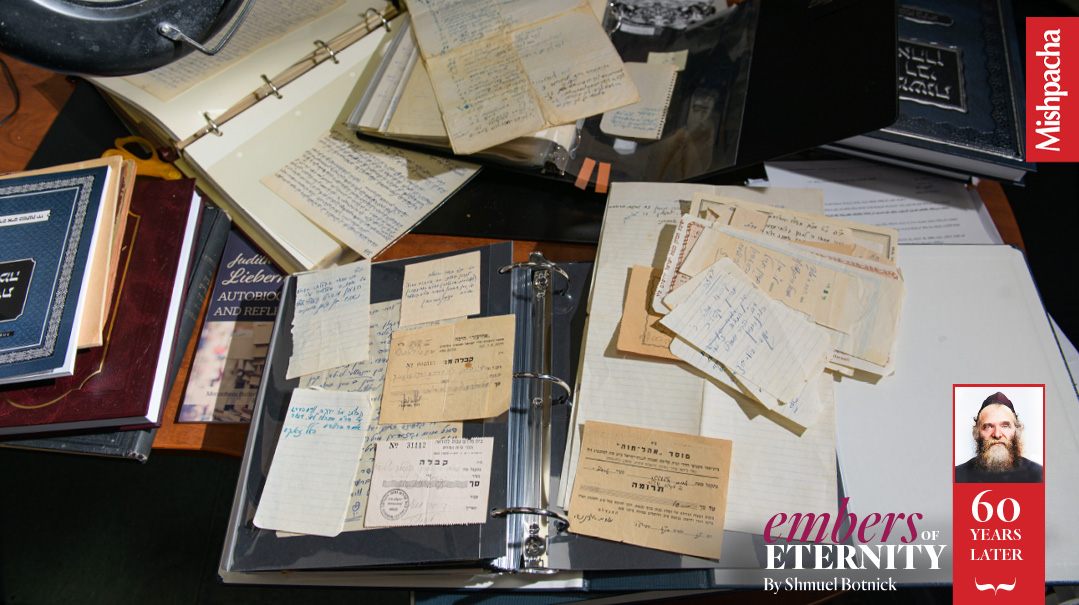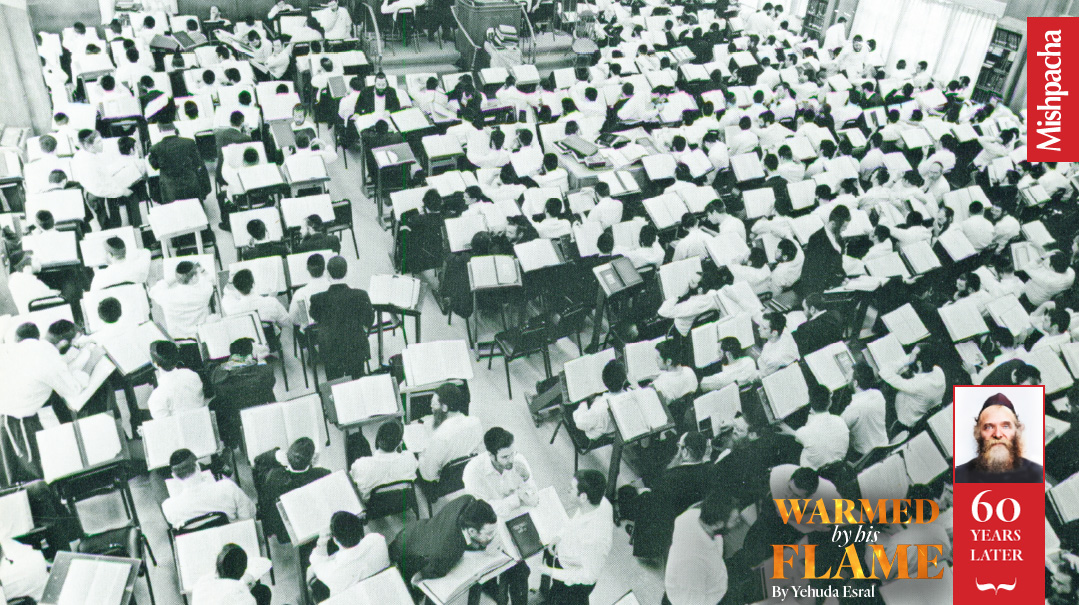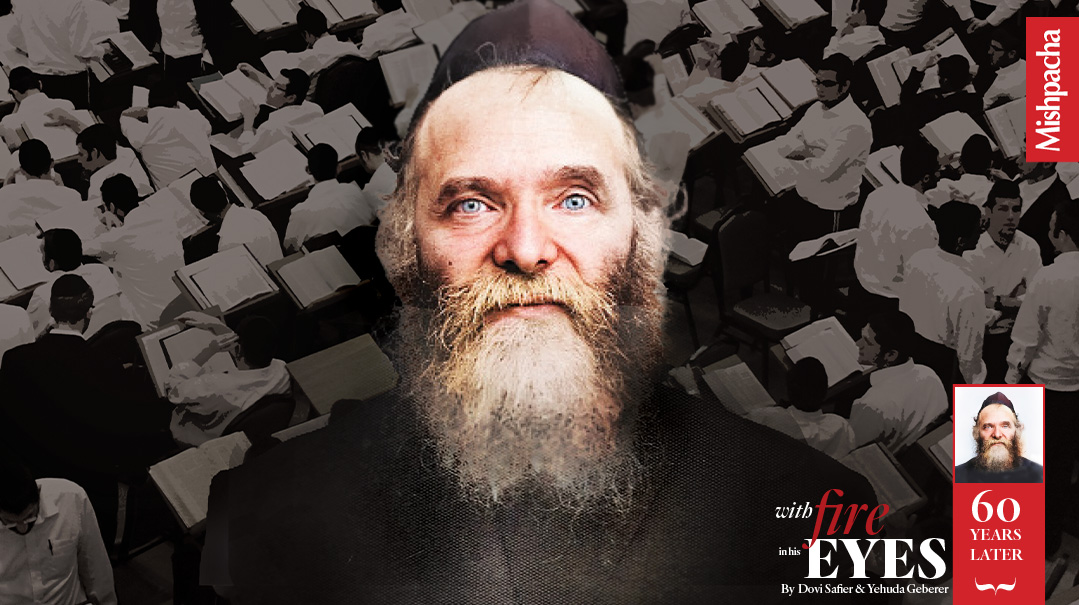Branded by Truth
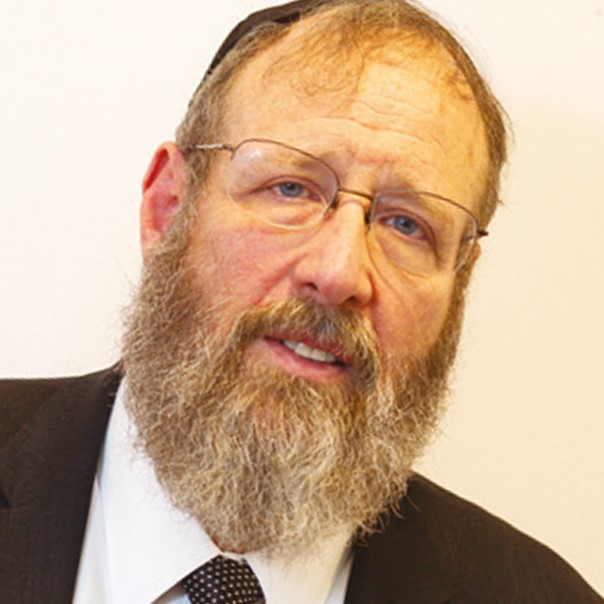
Once the boy arrived, it was Rav Aharon who caused the transformation
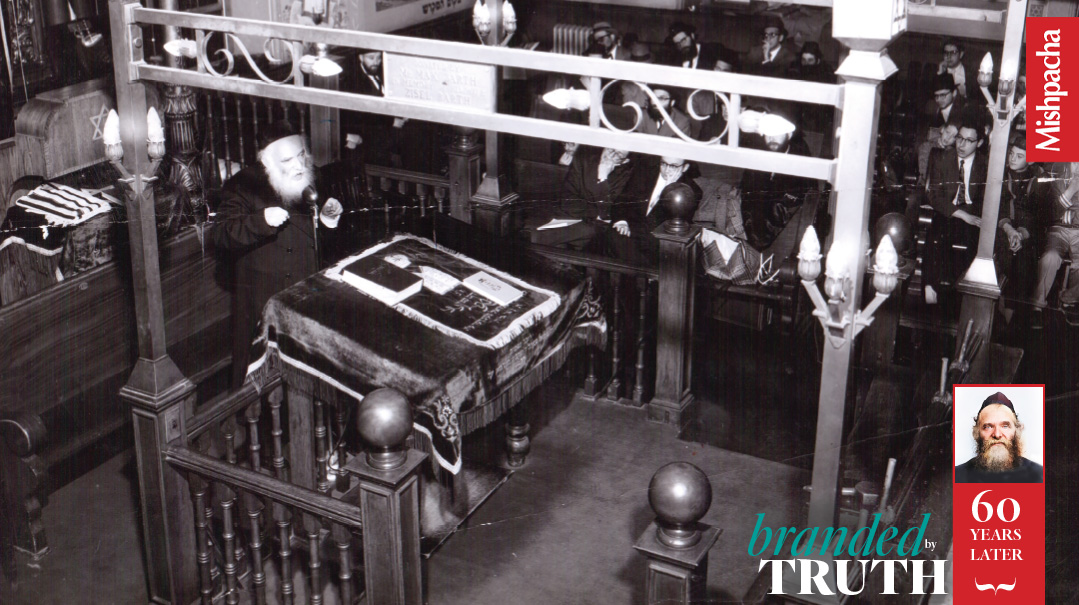
I was privileged to see Rabi Meir from behind. (Eiruvin 13b)
One night when I was seven years old, my father hurriedly awakened me. Rav Aharon Kotler was here! He had come to our neighborhood to purchase arba minim in a shop in the basement of our building.
We rushed down to the shop and I beheld Rav Aharon for the first and last time; his fiercely piercing eyes were trained intensely upon the merchandise before him, and then briefly upon me as he gave me a brachah.
A few years later, our class was taken to Pike Street on the Lower East Side to attend Rav Aharon’s funeral.
Lo zachisi liroso b’fanav.
My generation did not merit the experience of those who had been his talmidim in Lakewood to learn Torah under his transformative influence. Theirs was the generation that defined for us the concept of a “yeshivah bochur.” They were real American boys who had somehow taken the unusual step of going off to Lakewood, where they were shaped into the first generation of American yeshivahleit.
Many of those talmidim became the roshei hayeshivah of the next generation, opening up yeshivos in countless locations in America and fanning the sparks of the Torah revolution. Ironically, Rav Aharon himself had no way to communicate with an American high school boy and convince him to come and learn. He had neither the background nor the vocabulary with which to reach that boy. Usually, the suggestion came from a high school rebbi who spotted a particularly bright or earnest bochur and encouraged him to go to Lakewood. But once the boy arrived, it was Rav Aharon who caused the transformation.
But how? Rav Aharon’s shiurim were a challenge to comprehend, even for a brilliant rosh yeshivah. His mind was lightning-quick and razor-sharp and he spoke at a rapid-fire clip. Even his shmuessen were far from user-friendly; the content spilled out in a powerful cascade.
Nor was he personally available to the bochurim of the yeshivah. Most of the week, he was elsewhere, raising funds for the yeshivah and tending to the far-reaching responsibilities he took upon himself for Klal Yisrael. As a result, talmidim who needed help in their learning or personal matters had to turn to others in the yeshivah. However, those were not the interactions that formed them. The catalyst was Rav Aharon.
How?
Let us examine a strange halachah regarding prophecy. We well understand that if a person fabricates a message from Hashem and disseminates it in Hashem’s name, the person is called a navi sheker — a false prophet — the penalty for which is death.
But the halachah is exactly the same for someone who hears a genuine prophecy from his friend, a genuine prophet, and then repeats that very Divine message verbatim in his own name (Rambam, Avodah Zarah 5:8). He too is deemed a navi sheker and is put to death. Why? While he is indeed plagiarizing someone else’s achievement, which is less than honorable, why does his deed make him a prophet of falsehood? Is he not preaching truth?
To understand the issue, we must understand the full meaning of “devar Hashem.” In general, every dibbur is nothing other than a platform for communicating a message. The listener hears the words and then judges whether to accept the information.
This is not the process, however, for Hashem’s words. The pasuk states:
“As sure as rain descends on the earth… and does not return until it has irrigated the soil and brought forth blossoms… so too, the word that goes forth from My mouth shall not return void, but it shall accomplish that which I have sent it out to accomplish…” (Yeshayahu 55:10).
Hashem’s word is guaranteed to penetrate the heart and bring about His intended result. The reason is because not only is the information contained in the Divine words true and Divinely ordered, but the very words are Divine, and therefore they penetrate the heart and soul of the listener.
For that to happen, the prophet himself must be of a noble quality, for his very person becomes the word of Hashem. After he has personally heard the devar Hashem, he transmits that very dibbur to the nation.
The Tiferes Shlomo explains the blessing on the haftarah, “for He chose good prophets and was desirous of their words stated in truth.” He comments, “Of course He would be pleased with their words. Weren’t those words said by Hashem himself?” He explains that this blessing means that Hashem chose prophets who had been good and had spoken truthfully before He endowed them with the gift of prophecy. Thus, the information conveyed through prophecy is obviously true, for it is conveyed in Hashem’s words. But also, the spoken words of the prophet are “truth,” for that is the quality for which the prophet was chosen: a man whose language is truth.
Content alone will rarely have significant impact on the listener. Imagine this conversation: Someone stops us in the street and asks, “Do you believe in Hashem?” We respond, “Yes.” “Do you believe in Torah?” he asks. “Yes,” we answer. “Well,” he continues, “the Torah says that you are not allowed to speak lashon hora. Do you agree with the point?” “Yes,” we affirm.
Does the person believe in what he told us? Is he sincere? Probably. But as sincere as he is, this is not who he is. His words did not emanate from his essence, and therefore while they might awaken us for a moment, they lack the power to change us.
On the other hand, “Devarim hayotzim min halev nichnasim el halev — that which emanates from the heart pierces the heart” (Sefer Hayashar, 13) — is a principle that not only describes sincerity, but also refers to our essence. When words emanate from someone’s essence, they inevitably affect us.
This is why the prophet had to have heard the words of his prophecy directly from Hashem in order to deliver them to Klal Yisrael. One who merely repeats the prophet’s words is a false prophet, because even though the information is correct, the words that deliver it are false. Therefore, the message will have only a negligible effect on us. The genuine devar Hashem is delivered in “words of truth,” which Hashem guarantees will irrigate the soul and cause the barren person to blossom.
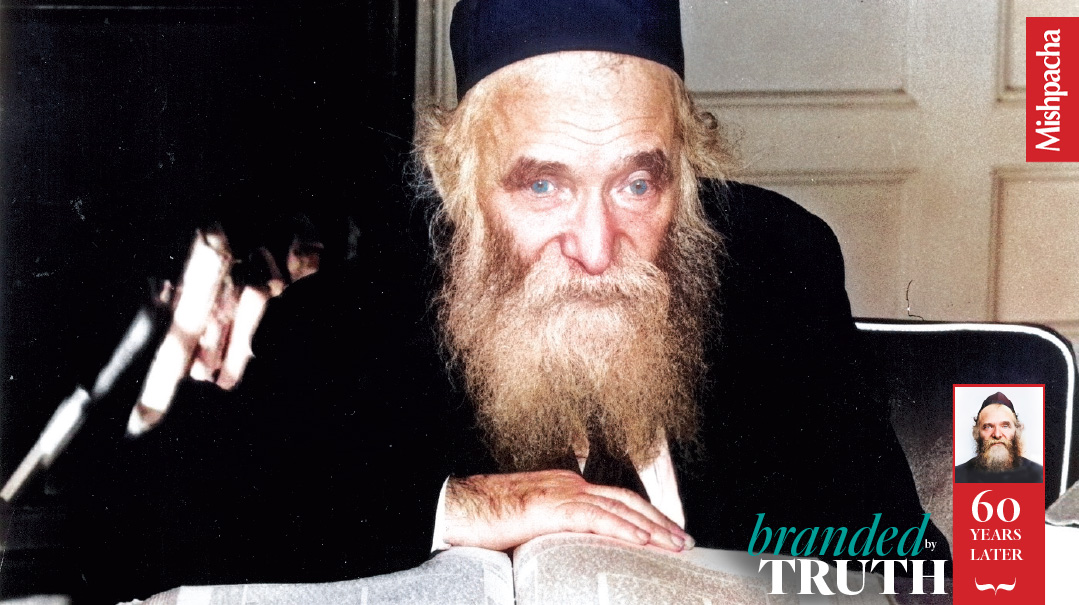
Rav Aharon was Torah incarnate and truth incarnate. When a person does not possess those qualities, he has to deliberate about what techniques to use to deliver his words in a way that will convince the listener. He must hammer out the proper format, approach, delivery, and many other embellishments. But when Rav Aharon spoke, whether in a shiur or a shmuess or in private, it was his very essence that poured out. There was no gap between the person and the words; he was the ultimate ne’emarim b’emes.
Indeed, emes was perhaps Rav Aharon’s core middah. A grandson of Rav Aharon told me that a person close to Rav Aharon needed to pursue a professional career. Rav Aharon agreed that this was the correct move under this person’s particular circumstances, but he nixed one career: law. “Because,” he explained, “you learn to play with the truth.”
This understanding gives us a perspective into a unique facet of Rav Aharon’s shiurim. Although Rav Aharon was a uniquely sensitive person, when someone would interrupt or ask a question in the middle of a shiur, he was usually met with a torrent of fury. Many times, Rav Aharon would later apologize profusely.
The Gemara actually addresses this phenomenon and explains that “if you see a talmid chacham ‘boil over’ while engaged in study, it is his Torah that is boiling over” (Taanis 4a).
Many understand this as merely excusing the talmid chacham. However, it is a far deeper point than that. It means that a genuine talmid chacham, when delivering divrei Torah, ceases to be himself; he becomes the very divrei Torah he is transmitting.
When Rav Aharon was saying the shiur, he and his words were one. When someone made a comment that was wrong, the very words of Torah lashed back. It was only after the shiur, when Rav Aharon was himself again, that he would become aware of the questioner’s discomfort and apologize.
This is why we find it so difficult to serve as effective mashpi’im. The message that we’re trying to give to our talmidim is certainly true; it is Torah. But our words, as sincere as they may be, are simply too far removed from our essence to be considered “ne’emarim b’emes.”
They are from us, but they are not us. Rather, there’s a bit of a separate “us” mixed in. We are not only presenting Torah, but also a bit of our own chiddush. We are not only giving mussar to talmidim; we are expressing a bit of our frustration with them. When we speak, we are not only acting as a conduit for the devar Hashem; we are presenting a bit of ourselves as well.
Over 80 years ago, America was a barren desert with an occasional oasis here and there. No amount of cultivation could turn that barren desert into a lush field. Only the genuine devar Hashem possessed the Divine promise that would perforce caused the earth to blossom and thereby accomplish an incredible miracle. Hashem chose a person who was a “navi tov,” and whose words were ne’emarim b’emes. There was no gap between Rav Aharon and his Torah. There was no self — just a fire of pure, unadulterated emes.
The words that emanated from him permeated those willing to just listen. A generation sprang to life from these words “spoken in truth.” So powerful were these words that we, i.e. the talmidim of my generation, who only caught their echoes, were also most profoundly moved.
“Blessed be the One Who chose prophets that were tov, and Whose words were said b’emes.”
(Originally featured in Torchbearer, Rav Aharon Kotler Tribute, Issue 941)
Oops! We could not locate your form.

